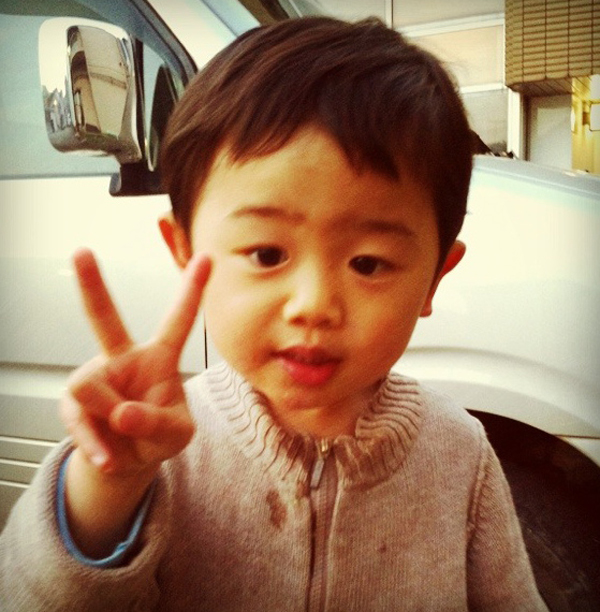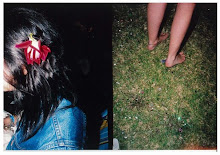This time last year I was feeling all kinds of crazy. I was wondering whether I should stay in Japan, or whether I should leave. I could hardly bear the state of sleep deprivation from constant after shocks and I felt like my heart was breaking bit by bit as people searched for their loved ones and mourned the loss of those who could not be found. I couldn't bring myself to watch footage and felt increasingly hopeless as my inbox flooded with urgent messages that I come home immediately. To experience anxiety on a group level is an unnerving thing, and I hope I never have to again.
Today, Japan feels like a completely different place but there is still a long way to go. The country will forever bear the scars of the March 11th destruction, but the resilience of people here continues to amaze. Below is a piece I wrote for my friend Courtney's website Always Sometimes Anytime, on experiencing the earthquake and trying to cope after such a catastrophe. It was probably one of the hardest things I've ever written but I feel it was (and still is) true to my emotions.
My friend Yas' child Mate-o, a few months after the earthquake flipping the peace sign. Peace for Japan!
May 24th, 2011.
It’s taken me a while to muster the energy to even think about writing this piece. There are the things that happen that you can never anticipate. Like when you’re told someone close to you has died, or a natural disaster has happened in a place you love, and now everything you once knew has been destroyed. You can never be ready for those moments, all you can do is react. This also applies when something bad happens to you. In one instant everything goes from banal to unreal.
When I was little I loved earthquakes. The idea that the stable ground beneath my feet could rock back and forth was exhilarating and fascinating. I couldn’t understand how or why it happened but I liked that something that seemed so concrete and permanent could be shook up when fate commanded. I couldn’t understand why adults seemed to react to such occasions with disdain and trepidation.
I moved to Japan ten months ago. In my first few months I would wake up in my tatami apartment and feel nervous and excited about what the day would bring. Japan is so different in every single way. The trees look more orderly, people bow and apologise profusely over minor things and quaint bicycles line the sweltering streets. The language is difficult, and at times, terrifying. Every day you learn something new.
When I arrived in my new apartment I cried in the kitchen like a giant baby, surrounded by my suitcases and thought ‘what have I done?’ I was scared. A quick visit to the supermarket confirmed this as I meandered along the neon lanes utterly dazed and confused about what everything was. I left the supermarket that day with a bunch of bananas and a pack of beer. At that point it was the only thing I was certain of.
Japan taught me how to be alone. In New Zealand I had lived with friends. I had always been surrounded by people. I may have even developed slight ‘fear of missing out’ if something fun and wonderful was happening and I wasn’t there. Suddenly I knew no one, I lived alone, I was lonely. Luckily this passed as my culture shock subsided and I learnt the importance of time to yourself. Japan gave me a strange new sense of confidence. Going solo to movies, cafes, restaurants and gigs became easy.
I teach at a Senior Japanese High School in a town called Yonezawa, in the Tohoku region. Friday, the 11th of March had been pretty mundane. The students were on study leave so I had no classes and spent most of the afternoon in the staffroom. It was a pretty standard day. I procrastinated my Japanese studies, read articles on the Internet, planned lessons, chatted to my coworkers and did a touch of writing. At 2.45pm the staffroom began to shake. I wasn’t too worried as we had had little earthquakes in the previous weeks. I knew the Japanese word for earthquake, jishin or 地震 as in the prior month my coworkers had expressed concern about the Christchurch jishin and I had followed the news closely, making sure friends were okay.
The shaking which had started slowly became more violent and I realised that 30 seconds had passed and rather than subsiding, the shakes were getting stronger. My coworkers were beginning to look afraid, which scared me and all I could think about was what a terrible noise an earthquake makes.The rattling creates a menacing sound like no other, heightening the sense of anxiety with each shake. Someone turned on the television, and the screen lit up with a live shot of a city skyline shaking. Books began falling off desks and shelves and photocopiers shimmied across the room. Everyone crouched on the floor and looked around nervously. A science teacher rubbed my back to comfort me and then we got under our desks.
One minute had passed and the shaking continued. I crouched under my desk as things fell left, right and centre. My mind was oddly blank and adrenalin pulsed through my veins. My jaw was clenched, my hands were shaking and I felt ready to run. It continued on and on, extending into what felt like an eternity. I learnt later it was just under three minutes. Then, out of nowhere it stopped. My hands were shaking terribly and my jaw hurt from being clenched so tightly. I felt weirdly exhausted but full of nervous energy and my fingers failed me as I tried to email Mum on my iPhone to say, I’m okay.
For hours afterwards it felt like I was on a boat that was rocking slightly. The ground felt like liquid. My coworkers and I huddled around the television and watched apocalyptic images of water sweeping over the Sendai plains, enveloping people, planes, cars and buildings like they were Lego pieces. I felt disbelief and immense sadness. Small details like a car windscreen wiper going back and forth meant that, horror of horrors, someone was in that car. Someone was in that building, or beneath that rubble, or in that tree. I worried for my friends in Sendai, a place too familiar, a meagre hop, skip and a jump away and an often frequented weekend destination.
That evening my friends and I stayed together in one apartment, too nervous to sleep. Japan has an electronic earthquake warning system for most phones. The night was spent springing up and racing to the door frames after each phone warning. Some shakes were small, some were big. Each time the nerves were further rattled. Sleep deprivation became a state of being.
The days to come were exhausting. Everything became difficult. There was limited gas, the temperature plummeted into a state of snowy misery, food was vanishing because everyone was panicking and there was no bottled water, milk, or bread.The aftershocks continued, and amidst the anxiety we received terrible news. There was a nuclear accident a mere 100km aways from us and there was no assurance things were getting better.
Trying to wade through the sea of information provided by both Western and Japanese media was discombobulating and uncomfortable. The Western media talked of a nuclear meltdown as bad a Chernobyl, which was hard for me to wrap my mind around. My inbox became flooded with urgent messages from friends and family pleading for me to come home. Meanwhile at work, the television blared but I could understand little of what was being said.
I packed my bag, not sure where I was going. What to pack? Batteries, snow boots, an old torch, a bag of peanuts and some thermals. Sleep deprivation and anxiety muddled my choices. One afternoon, nearly a week after the earthquake, a particularly strong aftershock struck. I was standing in my kitchen washing dishes when I was struck with a familiar thought. ‘What am I doing here?’
A few friends and I got together and we booked tickets out of Japan. As soon as this was decided I felt immense relief. With a saved tank of gas we made it across the country to where transportation was running and caught a Shinkansen to Tokyo. Sitting in the plane ready for take off the cabin crew told us a magnitude 4 earthquake had just struck, and they were checking the tarmac for cracks. I had never wanted to leave a place so badly.
Arriving in New Zealand felt wonderful, and safe. All I had wanted was a dark room, aftershock free, for heavy uninterrupted sleep. After much sleep and rest I started to feel less zombie like, but not really myself. It was like the tiredness had seeped into my bones and someone had taken a vacuum, sucking all creative urges out of me. I attempted to take photos, lurching back into a familiar sense of reality, but they came out flat and uninspired. My computer stayed switched off, my sentences trailed off into nothingness. The normality and safety of my new and uncertain time in New Zealand felt bizarre.
It’s now a little over two months since the earthquake and tsunami struck and I’m back in Japan. I feel more like a functioning human being now. Obviously, things will never be the same for Japan, but it’s getting better slowly. Upon arrival I saw that the cherry blossoms were in full bloom, an utterly beautiful sight. This year, the blossoms are tinged with sadness, serving as a poignant reminder of extreme beauty and fleeting mortality.
I have been in complete awe of the resilience and bravery of the Japanese people and hope that things can only get better for the country. The best thing to come out a natural disaster are acts of selflessness, goodwill and love. In Japan, it is everywhere.



